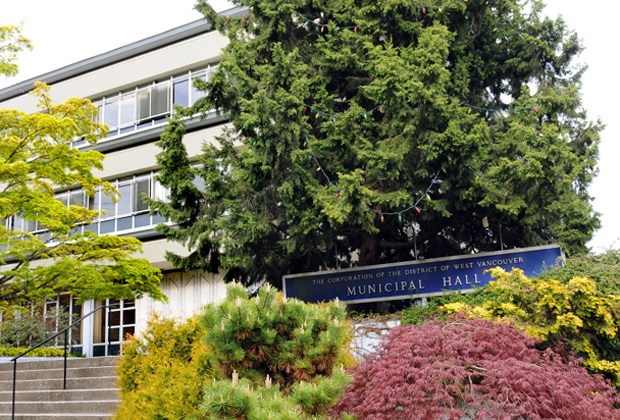District of West Vancouver council is joining its two North Vancouver neighbours and cities south of Burrard Inlet in raising concerns before the National Energy Board about Kinder Morgan's proposal for a twinned pipeline to Burnaby.
Council voted unanimously Monday night to have staff apply for intervener status at the NEB's hearings into the project, and report back on the future costs of making an appearance before the board.
If approved by the NEB and federal cabinet, Kinder Morgan will almost triple the capacity of its Trans Mountain pipeline, which runs between Edmonton and Burnaby, from 300,000 to 890,000 barrels of diluted bitumen per day. Tanker traffic in Burrard Inlet would also increase, with 34 tankers hauling oil each month up from the current five.
Coun. Craig Cameron introduced the motion, saying it does right by residents whether they are in favour of or opposed to the Trans Mountain application.
"We have a very vested interest as a district, and our residents do, in making sure that this project, if it goes ahead, is done properly. Even if you're for it, you want to make sure the environmental safeguards are second to none. And if you're against. .. we should take heed and voice concerns of our residents," Cameron said. "We need to know what the potential health effects are. Even if there are no spills, what are the air quality effects, if any, and what can we expect? I, personally, am not convinced that the City of Vancouver is the right place to become a major oil export facility."
Coun. Bill Soprovich used even starker terms when it came to the risks posed by attempting to move tankers in and out of the narrow inlet. "We have a lot to lose if something should happen," he said. "All we need is one accident and we're done.
We are toast in this harbour, the ramifications of which, I can't tell you, but (they include) economics and people's health."
West Vancouver's application should follow the lead of the City of Vancouver's, argued Coun. Nora Gambioli. The expansion poses unacceptable risk to health and the environment as well as city's reputation and brand, she said. The NEB also fails to consider the environmental impacts of oilsands development, climate change, and that the city's residents and businesses are not indemnified from damages, should there be a catastrophe on the water.
"Our No. 1 industry is real estate and our No. 2 industry is tourism, so it is very important to our economic well-being," she said.
Coun. Mary-Ann Booth also cast doubt on the economic benefits touted by the pipeline's proponents. "There is some question around the economic benefits that would flow to British Colombians and Canadians, generally. It should not be assumed this is a given," she said.
But Mayor Michael Smith, who cast the only vote against a prior motion to oppose the application, cautioned that preparing a presentation for the NEB is a pricey endeavour.
"The application is 15,000 pages and Burnaby has hired a full-time lawyer to start ploughing through the documents," he said. "I know everybody is not going to agree with me but I don't think spending a lot of money on legal fees is a good use of public money, or private money for that matter either. I guess we need to see exactly what the costs of our intervener status is going to be and I'm happy to say (staff) is going to bring that back to council before we commit any resources."
The vote followed two presentations from North Shore NOPE, a group representing more than 300 members opposed to Kinder Morgan's plan.
With federal and provincial governments openly signalling approval for pipeline expansions, it falls to municipal governments to protect citizens from the immediate and long-term risks they pose, argued Len Laycock.
"It is not the time to double down and add to the problem," he said.



